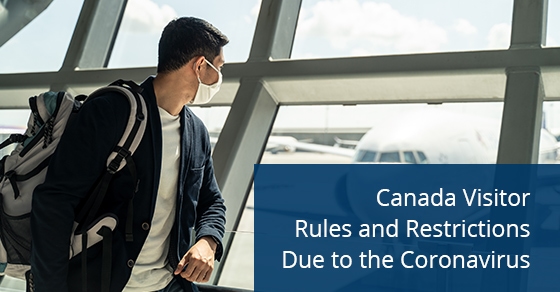As of November 2020, Canada has been in the grip of a second wave of the Covid-19 coronavirus. This means that travel restrictions introduced in March during the first wave remain in place and are likely to stay in place for the foreseeable future. Here is a summary of the travel restrictions for foreign visitors to Canada.
ArriveCAN
As of November 21, 2020, travellers to Canada are required to use the new ArriveCAN application or online portal in order provide their quarantine plan, travel and contact information, and Covid-19 self-assessment. This can be downloaded from the Apple app store or from Google Play. The online portal can be found on the Government of Canada’s website. When entering Canada visitors will be required to show their ArriveCAN receipt either on their mobile device or as a print-out. This is mandatory for those travelling by air, and strongly encouraged for those entering by land or sea.
Quarantine Plan
Everyone entering Canada must quarantine for at least 14 days after entering Canada. This means going directly to an address where they can remain in isolation and staying there without going out for 14 days. Border officials will expect people entering Canada to have a suitable quarantine plan, preferably in writing. If they don’t, they may be required to go to a designated quarantine facility and stay there for 14 days.
Foreign visitors are restricted with certain exemptions
As a general rule, no foreign nationals may enter Canada as visitors at this time. There are certain exemptions to this rule. The exemptions apply to immediate and extended family members of Canadian citizens, permanent residents, or registered Indians (First Nations).
Visitors who are Immediate Family Members
The following immediate foreign family members of Canadians may enter Canada as visitors:
- Spouses or common-law partners
- Dependent children (under the age of 22 and unmarried)
- Dependent children of dependent children (i.e., grandchildren)
- Parents or Step-parents
- Guardians or Tutors of minor children in Canada
The above-listed immediate family members of Canadians may enter Canada if they have the required visa, or are from a visa-exempt country. The immediate relative will need proof of the relationship, for example a marriage certificate, a lease showing cohabitation for at least a year, or a birth certificate, etc. The immediate relative will also need proof that their relative is Canadian, for example a Canadian passport, permanent resident card, or birth certificate, etc. The immediate relative needs to remain in Canada for at least 15 days and must have a quarantine plan for the first 14 days.
Visitors who are Extended Family Members
The following foreign extended family members of Canadian citizens, permanent residents, or registered Indians (First Nations) may enter as visitors:
- Persons in an exclusive dating relationship for at least one year
- Non-dependent children (adult children)
- Grandchildren (children of adult children)
- Siblings (brothers and sisters)
- Grandparents
In order for the above-listed persons to visit Canada they must first have a visa or be from a visa-exempt country, and must make an application for authorization to travel to Canada. This application must be approved before travel to Canada is initiated. When entering Canada, the foreign visitor will need to show the approved authorization to travel. The visitor will also need to go into quarantine for at least 14 days, and will need a quarantine plan explaining where they will stay and how they will self-isolate during this time.
Visitors coming into Canada for Compassionate Reasons
Foreign nationals who have the appropriate visa or are from a visa-exempt country may enter Canada as visitors if they are doing so for the following compassionate reasons:
- To be present in the final hours of life for a loved one
- To provide support for someone who is critically ill
- To provide support for someone who needs medical support
- To attend a funeral
Before entering on compassionate grounds, a visitor must make an application for authorization to travel to Canada, and receive pre-approval. As with other visitors, those entering for compassionate reasons must present a quarantine plan for the first 14 days that they are in Canada.























